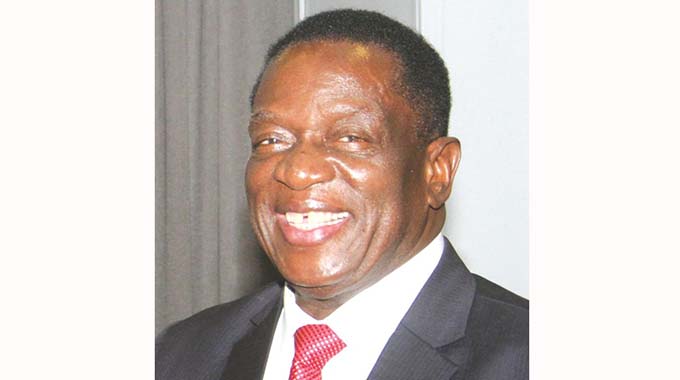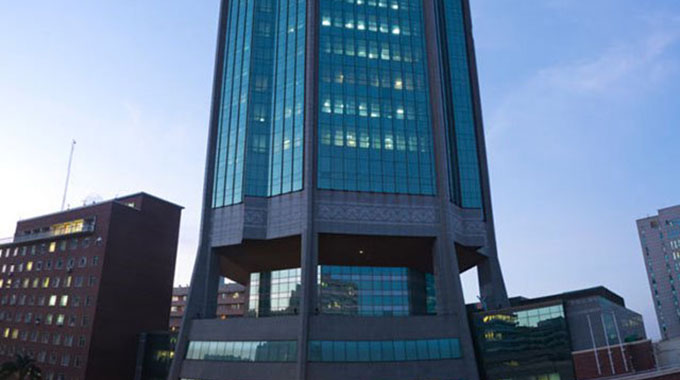Can Zim replicate the Rwandan success story?

Rudo Grace Gwata-Charamba Correspondent
LEARNING, which involves increasing knowledge through the integration of best practices and lessons learnt into decision making, is arguably one of the best strategies for improvement and development.
Zimbabwe was privileged to get an opportunity to learn about experiences regarding the success story of Rwanda from a team of Rwandan governance experts.
The team comprised the chief executive officer and chief operations officer of the highly performing Rwanda Development Board, an institution that helped the nation to successfully turnaround its economy. According to literature, the government of Rwanda adopted the Results -Based Management (RBM) strategy as a policy aimed at “maximising the value of services delivered by the public service to citizens.”
The nation has recorded success stories regarding this adoption and implementation of both RBM and the related Rapid Results or 100-day approach.
The team of experts intimated that the success of the country’s turnaround programme was primarily made possible through commitment by the highest office to making a difference in the lives of people, which is in line with above-mentioned key strategy.
Literature portrays RBM as a sound tool for governance and democratic development programming that promotes results-oriented public sector management. This is primarily because the approach integrates strategy, people, resources, processes and measurements to improve decision-making, transparency as well as accountability.
The related frameworks, which effectively contribute to the enhancement of stakeholder participation and good governance, are implemented for accountability, informed decision making, adaptive management and learning.
In fact, several Western democratic governments adopted the RBM approach as a way of managing business processes at the insistence of their citizenry who demanded greater accountability and transparency in the use of taxpayer contributions.
To enhance such accountability and transparency, the associated performance reports document “results achievements” at the output, outcome and impact levels, rather than the usual information about financial disbursements and activities accomplished
For the implementation of RBM to succeed in improving the performance of an organisation, stakeholders need -first and foremost – to realise that the current position is unsatisfactory and improvement is possible.
Secondly, there should be a clear vision shared by sound senior level leadership, with the leadership also fully supporting and actively participating in both the formulation and implementation of the related programmes.
In addition, customised systems that meet the needs and situation of the stakeholders need to be designed and developed with emphasis on learning from experience. Reports on Rwandan experiences shared by the team showed that all these pre-requisites for effectively implementing RBM were in place; the approach was effectively implemented and leveraged upon to make the related initiatives a great success.
The experiences shared also confirmed the efficacy of the RBM approach in facilitating growth and development.
The nation of Rwanda reportedly underscored the importance of unity, inclusiveness, accountability and a consistent aim at high performance, with all the elements modelled from the top.
Inclusivity entailed working around a national agenda and national vision with consensus between Government, civil society, the private sector and citizens. The vision is shared with all stakeholders who also become part of it and, therefore, are motivated to ensure its realisation.
In the same context, the maximum participation of both internal and external stakeholders was ensured through high levels of decentralisation where input into policy and programme formulation starts from the village level. Gender sensitivity was also prioritised to the extent that women currently constitute 64 percent of the leadership. In addition, all business processes were focussed on significant positive changes in the lives of stakeholders, thus effective enactment of the basic principle of RBM.
Every ministry signed a performance contract, again a basic tool of RBM, with the President of Rwanda and subsequently with individual staff members “setting out the priorities that impact positively on the lives of people.”
According to literature, the introduction, in 2006, and implementation of these performance contracts termed “Imihigo” is the most significant and successful efforts towards strengthening performance-orientation within the Public Service in Rwanda.
Putting citizens at the centre of reform and development, through political steering, often proves to have great impact on development. That is, the political leadership affirms that RBM is the approach to be adopted not just by the government, but the whole country, thus ensuring commitment as well as political will from the highest levels. Early results from the ensuing effective implementation often facilitates buy-in even among initially unconvinced.
Closely linked to the maximum participation of stakeholders was the effective sharing of information and knowledge as well as learning for all stakeholders through regular review of performance in many fora; enactment of another basic principle of RBM.
The fora included annual national leadership retreats and highly participatory national dialogues chaired by the president as well as open national dialogue involving the highest levels of authority. Information on results was appropriately shared and, subsequently, used to inform decision making, including the allocation of resources, other adjustments, learning and accountability. In addition, such processes led to the identification of performance problems or improvement opportunities.
Evidence of such use of information on performance to decision making is borne by the resulting three revisions of the investment law based on feedback from performance measurement.
This is in line with the basic principles of RBM where performance analysis and continuous institutional improvement are regarded as vital elements.
The notion of accountability was also enhanced through institutional arrangements such as the Ombudsman, that were used for monitoring and control purposes. Overall, public service business processes were upgraded to a level where, in the team’s own words, “the country was run like a company,” and thus significantly enhanced public service delivery. Rwanda, therefore, effectively implemented all three phases of RBM namely planning (thinking), execution (taking action) and performance management (accountability and learning); performance which, arguably, led to its successful economic transformation.
With the high level and inclusive commitment, success was possible despite the then prevailing limitations. An example of the major results achieved was the reported increase in the registration of businesses from the previous level of 500 to 13 000 per year, which was achieved though the establishment of the Rwanda Development Board (RDB) as a one-stop centre for attracting investment. In the process, business reorganisation systems were realigned, leading to great improvement where previously there were 12 procedures to register a business taking approximately three weeks to complete at an average cost of US$450, after the reorganisation, the same process is completed online in one spot, within six hours and free of charge.
According to the team, the President of Rwanda guided the transformation of individuals and organisations within the nation through the strength of his vision and personality; typical transformational leadership.
He reportedly encouraged the nation to “think big and aim high” in the context of available resources; action that changed mindsets and developed the necessary capacity for improved performance and transformation.
This is in line with literature which shows Rwanda’s success is attributed to this commitment to results by top leadership, the nation’s readiness to learn as well as the creation of a learning environment.
Such change of mindsets created and continued to sustain a culture of results that is focused on long-term positive changes in people’s lives.
Zimbabwe, already set on a pathway towards socioeconomic recovery and transformation, can leverage on this information sharing initiative to speed up and improve on the implementation of the development projects and programmes.
It is pleasing to note that the team made very positive remarks regarding the present positioning of the nation for an economic turnaround and growth.
First, the team acknowledged that the invitation by the Government was in itself evidence of the commitment from the highest level to accelerated development as well as a strong desire to learn and improve. Also experiential evidence shows that, within the new dispensation, the President has been making concerted efforts to stress the need for unity, inviting all to work as one.
In addition, the new dispensation has been consistently advocating good governance, with zero tolerance to corruption, and also an environment where business as usual is regarded as a thing of the past. All these elements embrace key principles of RBM which demonstrates progress towards the targeted results.
In the same context, the team acknowledged the stance by President Mnangagwa which clearly showed that “he meant business”.
Such commitment from the highest level had also been witnessed by most stakeholders since the formation of the new Cabinet and launch of the 100-day initiatives.
Additionally, the team remarked that the entire leadership, with whom it had interacted, demonstrated momentum for change and reforms while the infrastructure and institutional arrangements showed great potential for supporting the much-desired transformation.
Furthermore, President Mnangagwa has already demonstrated a transformational style of leadership as borne by the consistent call and related efforts for improving livelihoods in the context of highly participatory business processes.
Also, the shared 2030 vision and the introduction of 100-day initiatives, a sound tool for RBM, constitute critical pre-requisites for the earnest adoption of the approach which is an effective tool for meaningful development.
Additionally, the invitation of the Rwandan team as well as the reported enthusiasm among the leadership in Zimbabwe to learn from the Rwandan team demonstrate a significant level of capacity to learn, again a critical factor for the effective implementation of RBM.
These elements form a sound base for continued learning and improvement.
Furthermore, emulating successful models is known to be an effective strategy globally for enhancing development and economic growth.
In a closely related development, history shows that Rwanda managed to hasten economic recovery and behaviour change, within the public service, after learning about the successful use of Rapid Results Initiatives to turn around a declining economy in Madagascar.
Leveraging on information shared by the latter, Rwanda established a structure of governance that was suitable for its own goals and excelled. Therefore, as was the case with Rwanda and numerous other examples, Zimbabwe can effectively implement RBM and be able to closely replicate the Rwandan success story.
The process can start with continuing to build upon capacities developed during past phase of 100-day initiatives and, like Rwanda, proceed to establish structures that are suitable for its own peculiar goals.
Dr Rudo Grace Gwata-Charamba is a project/ programme management consultant and researcher with a special interest in Results-Based Management (RBM). She can be contacted via email: [email protected]









Comments